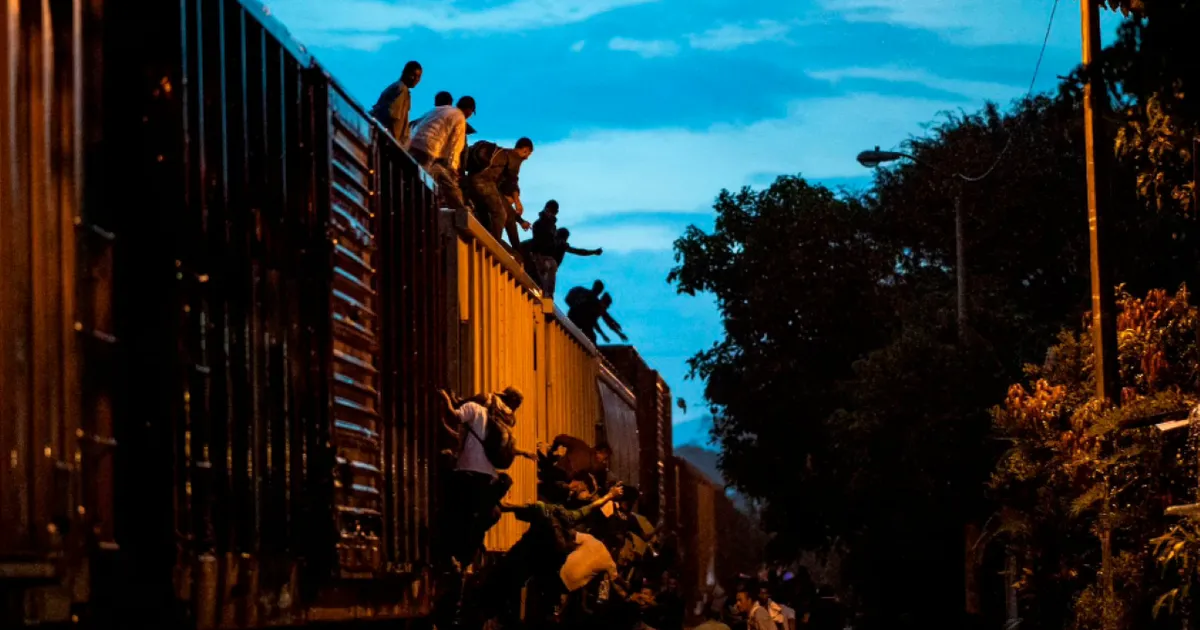McALLEN — The U.S. government has closed rail crossings in two Texas border cities, raising concerns about the potential impact on cross-border commerce and American consumers.
Customs and Border Protection (CBP) announced Sunday that it would temporarily suspend rail operations in Eagle Pass and El Paso starting Monday. He did not specify for how long.
Carriers and politicians have criticized the measure, which closes two of the six rail systems available between Mexico and the United States.
“This train doesn’t just stop at Eagle Pass. “This train doesn’t just affect Texas,” Tony Gonzalez, a Republican congressman who represents the affected region, said at a press conference on Tuesday. “This train has an impact on the entire United States, goods that go to the entire United States.”
Why is it happening?
CBP reported that up to 10,000 people entered the country illegally each day this month across its southwest border. Closing the roads will allow customs agents to support busy Border Patrol agents who need to detain migrants.
Thousands of migrants who have crossed the border and claim to seek asylum are sleeping rough along the border as they wait for federal agents to process them. Most are released with notices to appear in immigration courts, which already have more than 3 million cases still pending.
Operations were modified for similar reasons when CBP closed a port of entry in Lukeville, Arizona, a pedestrian crossing in San Diego and an international bridge in Eagle Pass, Texas.
What is the economic impact?
Union Pacific and BNSF are the two carriers affected by the rail closures in Texas. Between them, about 24 trains typically use the rail systems each day to move agricultural products, auto parts, finished vehicles, chemicals and other consumer goods, according to the Association of American Railroads.
Union Pacific estimated its losses — in goods, wages and transportation costs — will exceed $200 million a day if crossings in both cities remain closed. The company said the two crossings represent 45% of its cross-border operations and that it cannot reroute trains to other access routes.
BNSF did not provide a dollar estimate of the losses, but said it anticipates an impact on employees and a significant “downstream effect across our system as those trains then travel across our 32,500-mile (52,300-kilometer) network.” , according to a statement.
Which producer could be affected?
About 10,000 Union Pacific railcars are currently sitting on both sides of the border. Some of those cars contain auto parts and finished vehicles.
Automakers Ford and Toyota said they would not be immediately affected by the border closures, but Stellantis — maker of 14 auto brands, including Dodge, Jeep and Chrysler — expressed concern.
“The suspension of rail operations at international crossings between Texas and Mexico has the potential to significantly impact production at Stellantis’ North American facilities, which will quickly impact our U.S. supply base,” spokeswoman Jodi Stinson said in a statement. release.
Union Pacific said it has more than 60 trains — carrying cars, food and beverages, industrial products and agricultural products such as grain — waiting at the border.
The National Grain and Feed Association (NGFA) and the North American Grain Export Association (NAEGA) fear that the stagnation of grain and oilseed shipments will impact their customers in Mexico, one of the most important export markets for these groups.
“NGFA and NAEGA have learned this afternoon of the critical shortage of forage supplies facing several livestock feed suppliers in Mexico,” the organizations said in a statement. “We have also learned that grain trains in several states are being held for shipment due to the CBP embargo. The crucial nature of this issue is growing by the hour, particularly for those livestock feed suppliers who may be short on feed.”
Are there alternatives?
Trucks are a potential alternative to trains, although transporting goods at those volumes by road would be logistically problematic.
Union Pacific said it transports about 450,000 rail shipments each year through Eagle Pass and El Paso, and estimates it would require one million trucks to move the same volume, or 2,800 trucks a day.
Migrants often board trains when they pass through Mexico, but that does not guarantee them entry into the United States.
Union Pacific and BNSF use law enforcement, federal agency agreements and technology to deter and detect smuggling and people entering the country illegally. Union Pacific has a system that uses gamma rays to detect unwanted passengers.
Union Pacific said that in the past five weeks, it encountered only five migrants who were trying to enter the United States illegally aboard its trains.
“Through our efforts, at both ports of entry we have encountered very few people attempting to cross the border by train,” BNSF said in a statement.
Source: With information from AP


